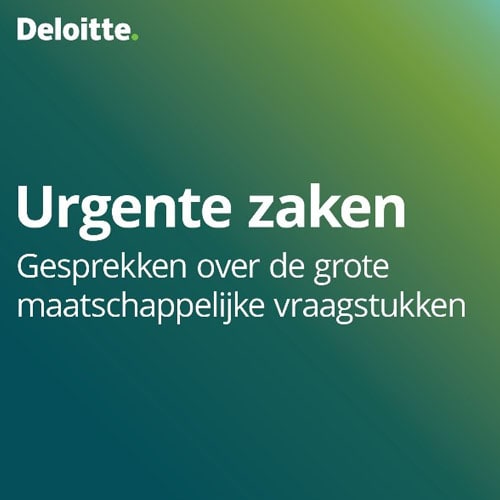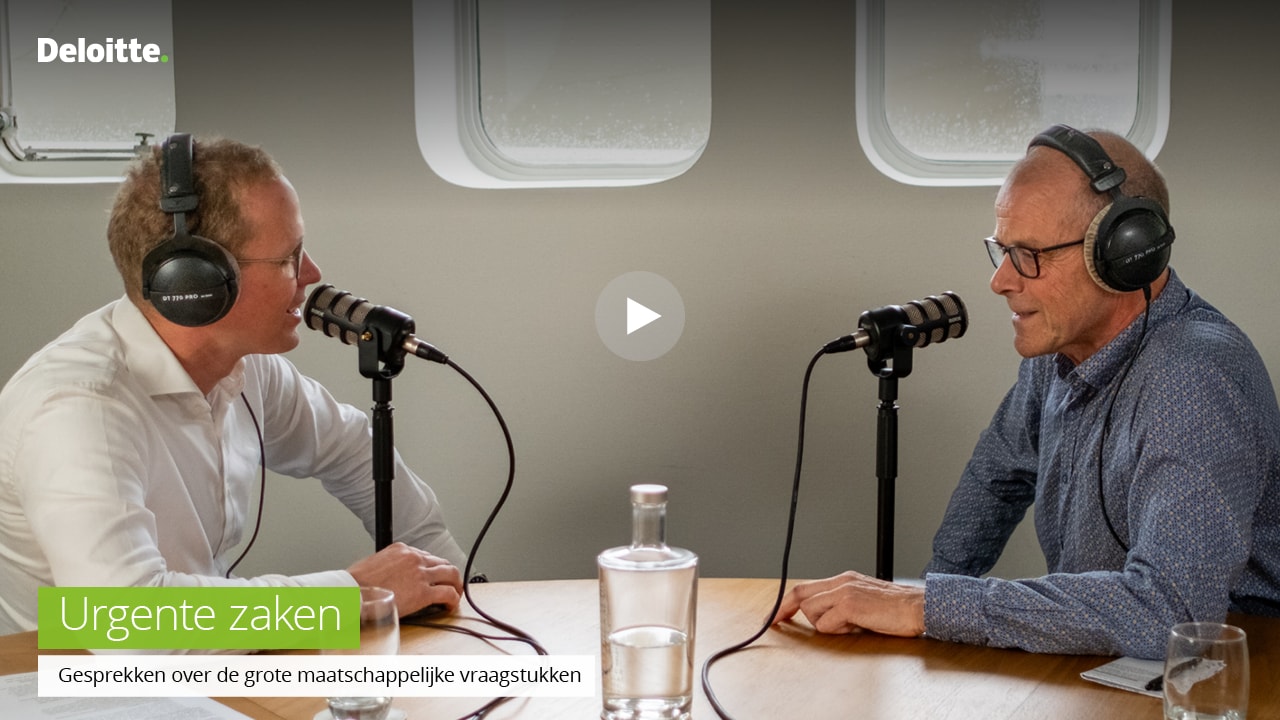Urgente Zaken: episode 'Behind the scenes of Testing for Access'
In this episode, Gijsbert Duijzer, Partner in Real Estate at Deloitte, speaks with Leo Beulen, Lieutenant General (retired) of the Army. They discuss the sense of urgency and collaboration between government and businesses, the Open Netherlands Foundation, and the challenge of testing 9 million people during a pandemic. And, of course, the need to prepare 100 buses in a depot in advance.
Deloitte's video series and podcast 'Urgent Matters' delves deeper into the societal issues of today and tomorrow. Together with governments, we not only explore the challenges they face but also focus on the essential question: how can we truly make progress?
Subscribe to our newsletter

#2 Urgente zaken: episode 'Behind the scenes of testing for acces.'
In this episode, Gijsbert Duijzer, partner in Real Estate at Deloitte, speaks with Leo Beulen, retired lieutenant general of the Army. The conversation focuses on the sense of urgency and the collaboration between government and businesses, regarding 'Testing for Access' and the question of how to test 9 million people during a pandemic. And oh yes, that we need to prepare 100 buses in a depot in advance.
Click here for more information.
The meeting takes place aboard the ss Rotterdam, the ship that was used for the vaccination programme during the pandemic. The conversation revolves around the Open Netherlands Foundation as an example of public-private collaboration to address a public issue—specifically, to contribute to the gradual reopening of social life in the Netherlands during the coronavirus pandemic.
They discuss the need for a solid financial organisation that remains agile enough to respond quickly in a crisis. Questions arise such as: what trade-offs do you make between options like 'Testing for Your Journey' and 'Testing in Aruba'? What determines whether restaurants can open or whether festivals can take place?
We asked Beulen about his experiences with the 'Testing for Access' programme. Where do you start when you need to test over 9 million people? How do you unlock society during a pandemic? And why did the health authority initially focus on testing sick individuals before shifting towards testing healthy people?
In the discussion between Beulen and Duijzer, it also becomes clear how an organisation had to be built at breakneck speed, with a nearly military structure. They had to ensure sufficient testing capacity after a trial phase to provide nationwide coverage. They also talked about the high tension during the opening weekend, when a DDoS attack threatened to disrupt everything.
One lesson Beulen draws is that in a crisis, the entire government must feel a sense of urgency. Additionally, since you can't plan for a crisis, responsibilities and divisions of tasks among ministers, regional authorities, and mayors should be clearly defined in advance. "In fact, you should have practiced a fictitious crisis a few times beforehand."
What does he feel is missing? "As soon as the urgency fades, we sideline all preparations. Meanwhile, we could already have 100 buses ready in a depot just in case."
Want to read more about collaboration in crisis situations? About future scenarios, policy choices, and implementation? Discover the steps we can take now in the article 'A Safe and Resilient Netherlands: Time for Concrete Steps.'





